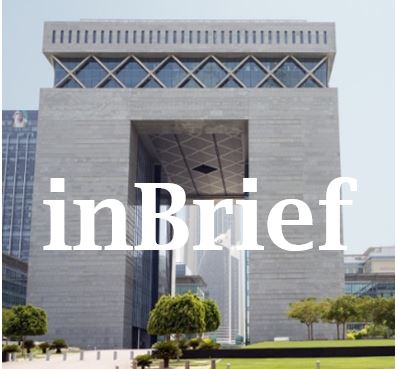DIFC Courts pierce veil of incorporation in employment/marital dispute
Afridi & Angell inBrief
July 2019
The DIFC Small Claims Tribunal (SCT), a branch of the DIFC Courts, has in a rare (if not first of its kind) judgement, pierced the corporate veil of a DIFC incorporated company to look into its shareholding and key individuals in the case of Jamaru Group Holding Ltd v Jasmine [DIFC SCT 116/2019].
Overview of dispute
Jamaru Group Holding Ltd (Claimant), filed proceedings against Ms Jasmine (Defendant) in the DIFC SCT seeking reimbursement of payments made to the Defendant purportedly during the course of her employment with the Claimant. The claim sought repayment of payments made by the Claimant towards her apartment rental in Dubai and a loan to enable the Defendant to pay off her student debt. The Claimant also claimed that the Defendant was in breach of her employment contract by resigning from employment without serving notice.
The Defendant in response argued that the Claimant was nothing more the alter ego of her ex-husband who was the sole shareholder of the Claimant and that the payments made to her were gifts given by her ex-husband during the course of their marriage routed through the Claimant which had no connection to her employment with the Claimant. The Defendant also raised a counterclaim against the Claimant for her gratuity payments which were being withheld by the Claimant together with Article 18 penalties and argued that she had been forced to resign from employment with the Claiment as a consequence of her divorce.
The Defendant invited the court to pierce the corporate veil of the Claimant since the Defendant’s ex-husband was maliciously driving the Claimant’s claim to circumvent the terms of the divorce between them which expressly stated that there would be no further claims by or against either party. The Defendant cited the English case of Wyatt v. Wyatt (545 S.W.3d 796, 801 (Ct. App. Ark. 2018), a divorce action, where the court pierced the corporate veil of a husband’s three corporations for the purposes of dividing the marital property to prevent injustice caused by an abuse of the corporate form to the wife’s detriment.
The judgement
SCT Judge Maha Al Mehairi in issuing her judgement accepted the Defendant’s arguments and noted that “the Court has the power to pierce the corporate veil of a company when a Claimant attempts to circumvent the terms of the divorce by claiming back payments or gifts given to the Defendant over the course of their previous marriage by hiding behind the corporate veil of the corporate entity to “prevent injustice”.”
The learned judge also held that the gifts given to the Defendant by her ex-husband “are entirely appropriate in a marriage” and that the payments were not made consequent to her employment with the Claimant and dismissed the Claimant’s claim for those payments. The Defendant was awarded her gratuity and Article 18 penalties as it was found that the Claimant had withheld these sums without a justifiable reason.
Effect
This judgement reinforces the DIFC Court’s pragmatic approach to disputes and its willingness to develop its body of law based on more mature legal systems. It also demonstrates that the DIFC Courts would not consider the principle enshrined by the well-known case of Salomon V Salomon as iron clad and that the Court would not hesitate to pierce the corporate veil to prevent injustice.
Afridi & Angell was pleased to advise the Defendant in these proceedings on a pro-bono basis. ■
Download inBrief as PDF



